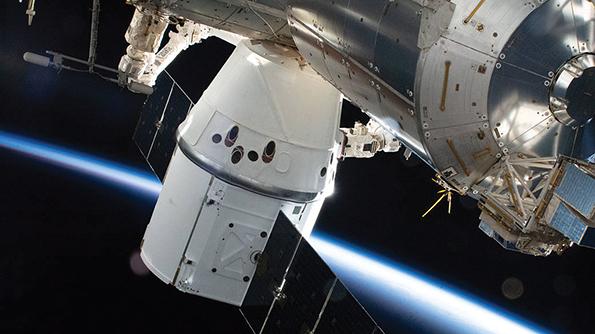
After a damning report by an independent review team, NASA is revamping its oversight of the Florida-based nonprofit organization that runs the U.S. National Laboratory programs of the International Space Station (ISS).
The ISS National Laboratory is “not a national laboratory in any sense other than its legislative designation,” the report notes.
- NASA chief economist named CASIS program exec
- Agency reorganizes its commercial portfolio
The 68-page independent review team assessment, titled “A Strategy for the Future of the International Space Station National Laboratory and Commercial Low-Earth Orbit Development,” was initiated by NASA Administrator Jim Bridenstine last August and released on April 6.
The report calls for significant changes in NASA’s oversight of the National Laboratory research and technology development operations and its partner in the program, the Center for the Advancement of Science in Space (CASIS.)
“While the aspirations for future space commerce expressed by NASA, CASIS and private sector participants reflect a boldness, the technical, regulatory and economic components of the equation are uncertain,” the report says. “And the trajectories for those based in physical and life science pursuits appear mutually exclusive.”
The panel, headed by the University of Arizona’s Elizabeth Cantwell, senior vice president for research and innovation, also notes that although private sector innovations portend greater reductions in launch and operational costs, NASA likely will remain the primary source of revenue for ISS launch and resupply for the next 5-10 years, whether the ISS National Laboratory remains hosted on the ISS or, as NASA envisions, aboard one or more successor commercial orbital platforms.
A complete transformation to becoming a commercial landlord is likely 10-20 years away, the panel says.
“Use of the ISS as a unique resource through its end of life cannot be considered in isolation from other NASA objectives, including research and development for long-duration human spaceflight systems, including capabilities for interplanetary travel and permanent space habitation,” the report says.
The ISS National Laboratory was created at a specific time for a specific purpose to address potential shortfalls in ISS utilization, the panel notes. “However, the underlying set of expectations and predicted futures have evolved dramatically in the intervening 15 years. There are now entities using the ISS beyond the scope originally envisioned for the ISS National Laboratory, as well as competition between NASA and the ISS National Laboratory for crew time, critical on-orbit facilities and ‘credit’ for breakthroughs,” it adds.
The ISS—a $100 billion NASA investment that costs an estimated $3 billion annually to operate—also is no longer confronted by underutilization, the panel says.
The report identified four over-arching issues with the NASA/CASIS approach as the ISS National Laboratory evolved: CASIS’ unusual structure and function for a nonprofit, lack of user community integration by CASIS, poorly managed oversight of CASIS by NASA, and poorly defined procedures for project and program sponsors entering and exiting use of the ISS National Laboratory.
“NASA has used CASIS and its results mainly for public relations and has played an insufficient role in driving what CASIS does,” the panel states in one especially critical conclusion. “CASIS has been left to define and redefine success based on a ‘many voices’ approach from NASA that has driven inflexible, and potentially damaging, board and operational behaviors,” the report says.
NASA says it is addressing the issues flagged by the review, including a reorganization of its commercial programs portfolio.
“You’ll see us create an organization where we focus all of our commercial work under one dedicated set of leaders,” Douglas Loverro, associate administrator for human exploration and operations said during an April 20 webinar hosted by the American Institute of Aeronautics and Astronautics.
“Within my office, CASIS was managed separately from our Commercial Crew program, which was managed separately from our Commercial Cargo program, which was managed separately, in many cases, from our commercial vehicle development program,” Loverro says. “We’re putting those all together so we can make sure that they are synergistic.”

NASA also appointed its chief economist, Alexander MacDonald, to serve as program executive for CASIS.
NASA and CASIS agreed to make changes in the composition and roles of the nonprofit’s board of directors and executive leadership, including selecting a new chief executive. The agencies also are organizing a Users Advisory Committee comprising members from organizations that have formal agreements with NASA, CASIS and other government agencies sponsoring ISS research.
Projects considered for the ISS National Laboratory will be evaluated with greater transparency and by multiple external experts, NASA and CASIS say.
The station’s U.S. segment was designated a U.S. National Laboratory by Congress under a 2005 NASA authorization measure seeking to increase utilization by other federal agencies and the private sector. NASA managed the lab until 2011 when, under congressional orders, it entered into a cooperative agreement with a nonprofit to manage the effort.
NASA signed an initial $136 million, 10-year agreement with CASIS that was extended in 2017 to cover operations through 2024, at a total cost of $196 million.






